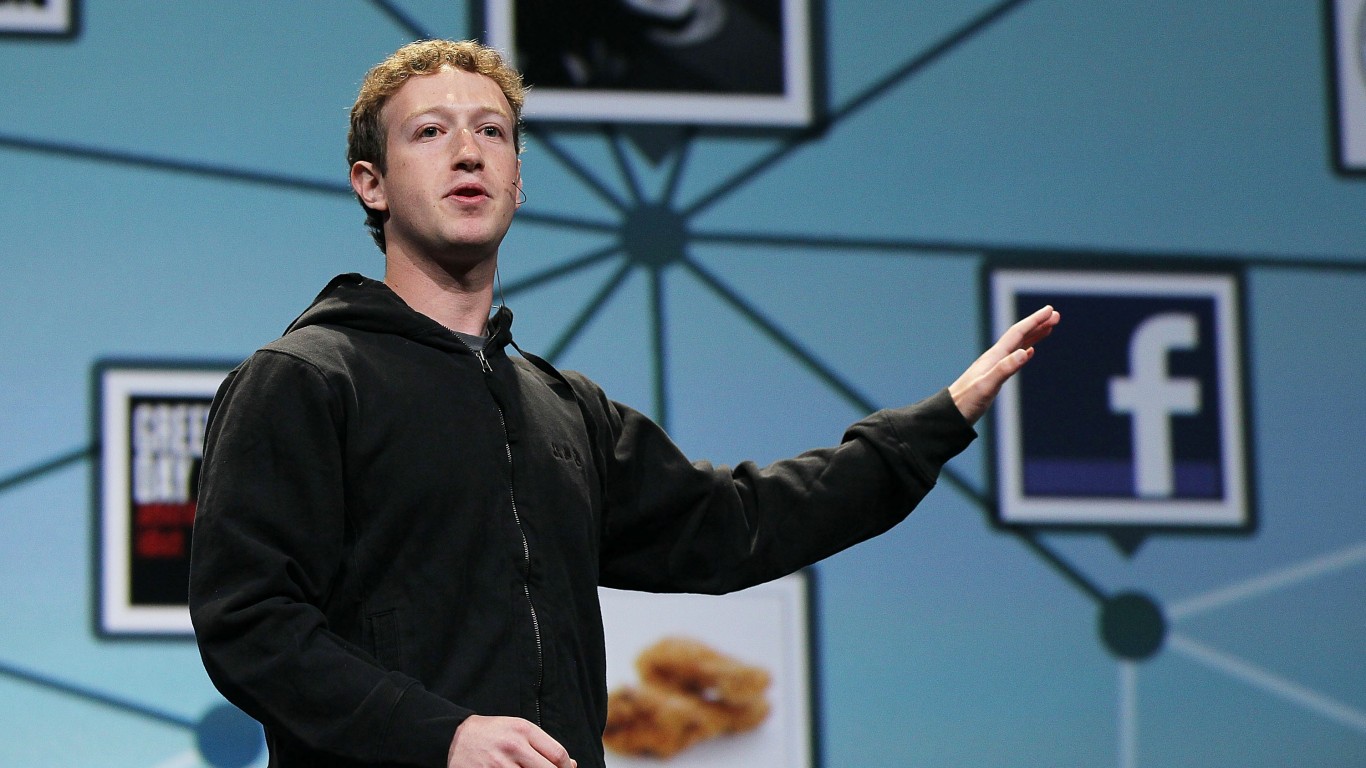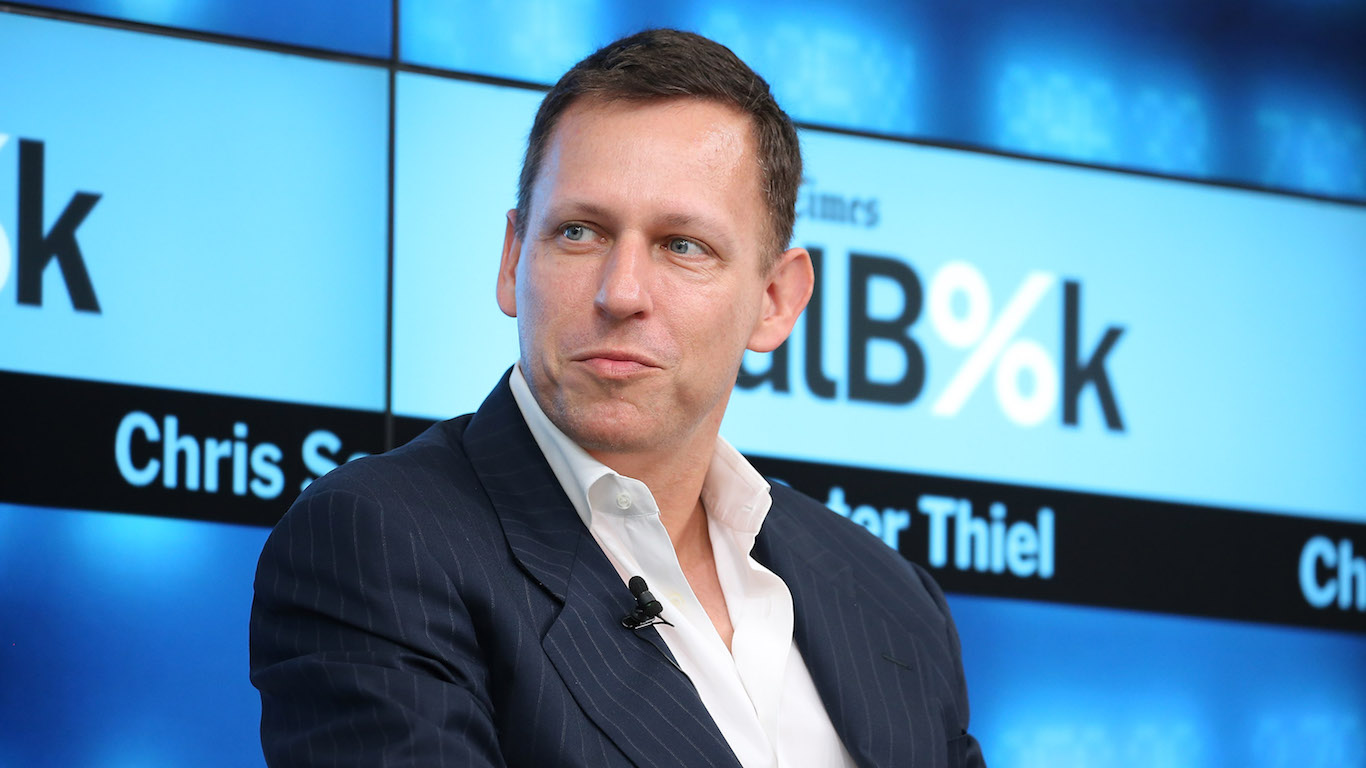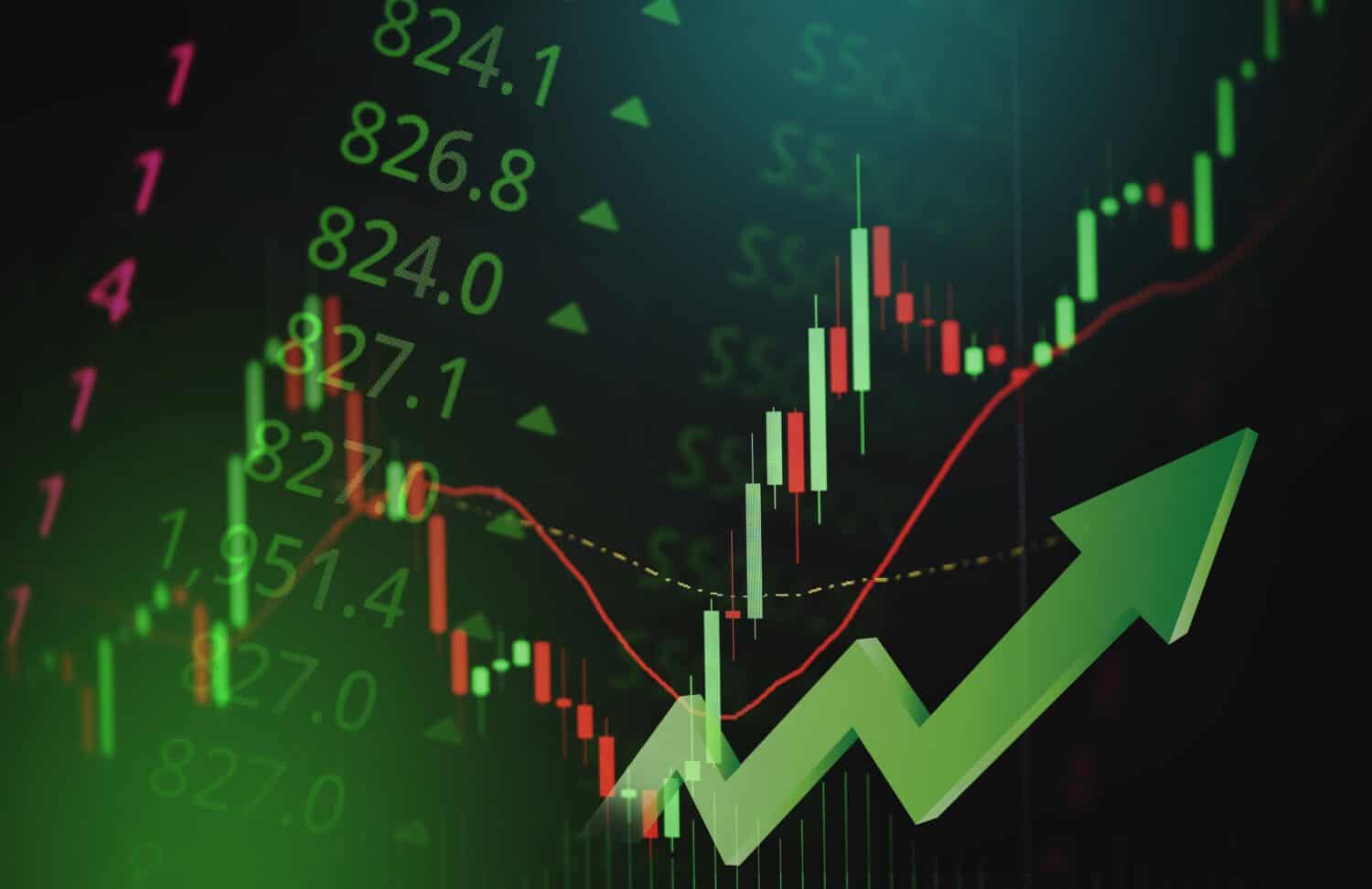

The Social Network (2010), was a surprise box-office hit, with a star-making role for Jesse Eisenberg as Mark Zuckerberg, the accredited founder of Facebook, which is now known as Meta Platforms, Inc. (NASDAQ: META). The film reportedly overdramatized some events, but, Zuckerberg’s disclaimers aside, was deemed to have been accurate in its depiction of the personal and legal controversies involved with the genesis of the first social media giant.
The Magnificent Seven Member Most Underestimated

In Gen-Z eyes, Facebook users are baby boomers or Gen-Xers who aren’t hip enough to be on TikTok. Even though Meta also owns Instagram, Whats App, Oculus, and Messenger, there is an entire generation that grew up thinking of Facebook as something their parents used, much like a previous generation derided the bulky laptop computers, cassette mixtapes, and cellphones with RAM measured in megabytes of their forebears.
Despite the appearances, Meta has been making technological developments and business moves that savvy investors have noticed. Perhaps not as press worthy as Nvidia (NASDAQ: NVDA) or as internationally significant as Apple (NASDAQ: AAPL), Tesla (NASDAQ: TSLA), or Microsoft (NASDAQ: MSFT), but enough to drive accumulation in the stock. Underestimating recent events which may give clues that a Meta forward stock-split is in the cards for 2024 can be a potential huge missed opportunity. But first, some context:
Friends in High Places

Mark Zuckerberg started Facebook, along with Eduardo Saverin and Dustin Moskowitz, while attending Harvard in the early 2000’s. As depicted in The Social Network, there have been numerous legal controversies over proper credit for the IP, stock ownership, and subsequent activities. Nevertheless, between that nascent college dorm startup and Facebook’s 2012 Morgan Stanley underwritten $16 billion IPO, Facebook use would grow to 845 million users.
However, there were some significant private investments that helped Zuckerberg along the way, prior to that IPO. Peter Thiel of Palantir (NYSE: PLTR), Reid Hoffman of LinkedIn NYSE: LNKD), Mark Pincus of Zynga (NASDAQ: ZNGA), Hong Kong magnate Li Ka-Shing of CK Hutchison Holdings (OTC: CKHUY), Yuri Milner of DST Global (NYSE: DST), Uzbek metals oligarch Alisher Usmanov, and even Microsoft were all early investors.
Within three years, Facebook use would top 1 billion users per day.
Stealthy Strength of Cash

Apart from his phenomenal martial arts skills, Bruce Lee captured the attention of millions with the stealthy nature of his physique. While the 1970s ordinarily lauded the muscle size and bulk of bodybuilders like Arnold Schwartzenegger, Bruce Lee appeared very slim until he flexed his muscles, when their defined nature would pop out to explain the unreal strength behind his punches and kicks. In similar fashion, Meta Platforms has some impressive financial muscle concealed by its ubiquitous social media operations and Zuckerberg’s precoocupations with Brazilian Jiu-Jitsu and Maui real estate. For example, take Meta’s debt.
- As of its Q1 2024 results, Meta Platforms had liabilities of US$28.1 billion due within a year, and liabilities of US$45.2 billion due beyond that. On the other hand, it had US$58.1 billion in cash and US$13.4 billion in receivables that were due within 12 months. So it has liabilities totalling US$1.77 billion more than its cash and near-term receivables, combined.
- Given Meta’s size, it’s clear that its liquid assets are well balanced with its total liabilities. The company has a market cap of US$1.2 trillion. Liabilities notwithstanding, Meta Platforms also has a cash-to-debt ratio of 1.54, a level of financial reserves with more strength, for example, than rival Apple, whose comparable ratio is 0.64.
- During the last three years, Meta Platforms generated free cash flow amounting to a very strong 80% of EBIT. Banks will fight for any lending business with Meta if it needs to issue bonds or take on additional debt.
Now one might ask, “Why should Meta Platforms need to borrow money?”
Zuck is Going For the Grand Slam

It has become no secret that AI as a sector is a significant engine powering the Magnificent Seven stocks. Whether it be in hardware, platforms, or applications, each holds incalculable revenue generation potential. In the case of Meta Platforms, Mark Zuckerberg is targeting all three.
Meta AI’s most advanced current model is Meta Llama 3. To power Meta Llama 3 for further development, Meta unveiled its next generation proprietary chip in April to replace the Meta Training and Inference Accelerator (MTIA) v1, which launched in 2023.
Zuckerberg has gone on record at Meta’s last earnings conference outlining his plan to use Meta AI to monetize higher returns for advertising customers with AI generated images, algorithms for more precise individually targeted marketing, and a host of other tools and options – for users of all of its platforms, in each country, in each language.
Zuckerberg: “On the upside, once our new AI services reach scale, we have a strong track record of monetizing them effectively. There are several ways to build a massive business here, including scaling business messaging, introducing ads or paid content into AI interactions, and enabling people to pay to use bigger AI models and access more computers. And on top of those, AI is already helping us improve app engagement which naturally leads to seeing more ads, and improving ads directly to deliver more value.”
Meta’s debt increased by $9 billion, poured in primarily for further Meta AI Research and Development work. Despite the expenditures’ failure to date to generate revenue, Zuckerberg has no plans to curtail Meta AI work and is apparently playing the long game, with Meta AI destined for Facebook, Instagram, WhatsApp, Messenger, and Oculus.
Clues That Meta Platforms May Be Planning a Stock Split

While the company has yet to make a formal announcement, there are a number of indications why Meta Platforms may be planning a forward stock split:
- Since its 2012 IPO, the company has never undergone a stock split.
- The IPO price was $38; at $476.20 at the time of this writing, IPO buyers are up over 1200%.
- Without AI monetization, Meta already increased Q1 2024 revenue over Q1 2023 by 27% and earnings by 114%.
- Analysts predict Meta’s earnings to increase at an annual rate of 28% over the next five years. This would equate to a $51 per share appreciation.
- Calculating that with the Nasdaq-100’s earnings multiple of 30 indicates a stock price of roughly $1,530 after five years, an approximately 229% rise from current levels.
- A stock price of $450-500 per share is more geared towards institutional investors over less affluent individual ones. A 4-for-1 forward split would reduce the stock price to a more affordable $100-125 range, which opens it up for thousands of individual investors, without any reduction in valuation.
- Meta Platforms has quietly bought back close to $15 billion worth of stock in Q1 2024 alone, after purchasing back $10 billion of stock in 2023.
Take This Retirement Quiz To Get Matched With An Advisor Now (Sponsored)
Are you ready for retirement? Planning for retirement can be overwhelming, that’s why it could be a good idea to speak to a fiduciary financial advisor about your goals today.
Start by taking this retirement quiz right here from SmartAsset that will match you with up to 3 financial advisors that serve your area and beyond in 5 minutes. Smart Asset is now matching over 50,000 people a month.
Click here now to get started.
Thank you for reading! Have some feedback for us?
Contact the 24/7 Wall St. editorial team.



